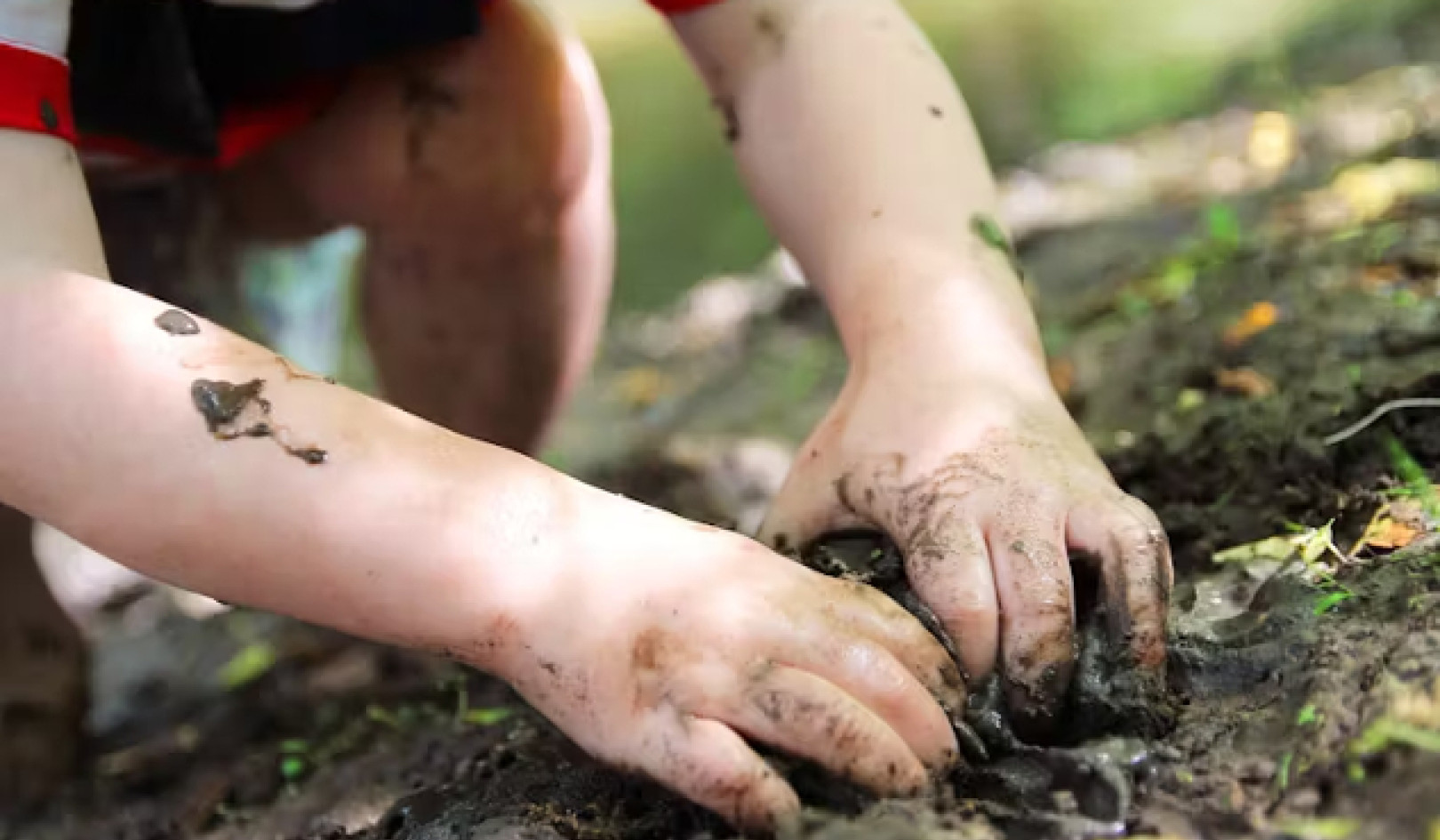
In his dazzling book Far from the Tree, Andrew Solomon points out that while we are all members of the tribes we are born into (part of our family, our geographical area, our native language, and our era), we also must seek out the tribe that celebrates our specialness.
Just think of the first time you felt truly at home in a place that wasn’t home. For me, it was in the theater. But maybe for you it was on the baseball field, or in the chess club, at Comic-Con, at a Grateful Dead concert, at the equestrian center, or out in the back alley behind the school.
I’ve heard there’s a whole tribe of “Quackers” who love the brightly colored, beaded, and appliquéd sweaters made by Quacker Factory. They wear their sweaters while traveling, so they can identify each other in airports, and they greet each other by saying “Quack, quack, quack.”
I think there is a real lack of whimsy in the world, and I love it that there’s a company that deliberately ignores fashion in favor of their values of fun, silliness, and good, old-fashioned friendliness and still grossed over fifty million dollars in 2011. That is one terrific tribe.
Uniting With Other Like-Minded People
When we unite with other like-minded people, we gain a power beyond ourselves. We gain insights, opportunities, and friendships. We suddenly have leverage — the ability to get a large return with only a small expenditure of energy.
Let me give you an example: if you wanted to raise $25,000 for the charity of your choice, and you tried to do that from your own income or savings, it might be a struggle. It could happen, but most of us would probably have to donate $100 a month for over twenty years.
But if you are part of a group of a hundred people who all believe in that charity, you could each donate $250 once and accomplish your goal in one month. And maybe twenty people out of that group of one hundred have access to even more funds, so they might be able to match the original donation, and now you’ve raised $50,000.
And let’s say that $50,000 starts to bring some attention to the charity, so more people are drawn to support it. Suddenly your $250 is being magnified by a tribe of other people: you are part of a movement.
Finding Your Tribe Accelerates Your Transformation
Part of the problem you may have had in changing your life is that you’ve tried to do it all by yourself, or you’ve tried to do it with the wrong people. Finding your tribe will accelerate your transformation and will often give you the means for the kind of quantum leap that seems impossible to most people.
When you have the right tribe, it gets easier to find important resources like a great real estate agent or doctor. The right tribe can help you find a job, a spouse, a terrific pair of new black shoes. Better yet, you get to be of service to the tribe, offering your time and talents to a group that appreciates you. The right tribe adores you just as you are right now. The right tribe will be your cheerleaders, hold you accountable, and call you to be your better self.
The tribe I’m talking about is not your family, your friends, your officemates, or your current spiritual community. It’s a group of people in your life who are dedicated to helping you shine your weirdo specialness into the world.
These people may not care about the day-to-day details of your life, and they are not invested in your staying the same (which is usually what your family and friends want, because they want to keep you safe). This tribe will inspire you to be better, bolder, braver, and more genuinely yourself than you’ve ever been before.
Finding your tribe may feel like a tall order, but it’s easier than you think. Especially now that we have the internet and you can connect with like-minded people all over the world, instantly.
Tribes Help Combat The Epidemic Of Loneliness
Together with your tribe, you can change the world and change yourselves. But another reason it’s important to have a tribe is to combat the epidemic of loneliness. Even as connected as we all are, people are more disconnected, too.
We’re not having those little chance conversations in line at the grocery store, or in doctor’s offices or airports, because we’re checking our phones. And the quality of the connectedness that we experience on our phones tends to be ephemeral, disappearing almost as quickly as it happens.
Sometimes you will feel alone in your life no matter what. And you must face your toughest struggles all by yourself. But a good tribe can stand by you during those trials and point the way to a brighter future.
For example, I love being a member of a tribe of teachers, authors, coaches, and healers who all care about conscious entrepreneurship. We convene in person once or twice a year, and many of us are in other, overlapping tribes, so we see each other fairly often. We also have a private Facebook group where we can ask questions, share heartbreaks, puzzle out moral dilemmas, and celebrate our wins.
It’s lovely to be part of a group of people who all believe that we can do well by doing good. We are also actively engaged in the larger questions that face the personal development industry — Does what we do really help people? How do we know if it does or doesn’t? What are our metrics for success? — and ethical issues of pricing, intellectual property (it can get a little sticky when there’s no copyright on wisdom), false claims, sexual harassment, and marketing practices. We share strategies, insights, and tales of woe.
Your tribe is your ticket to your best future.
Sam’s Top 12 Guidelines for Successful Tribe Building
1. The most important thing in any tribe is the vibe.
(Some people might use the word culture instead of vibe, but my culture is such that I think it’s more fun to say vibe.)
2. Pay attention to the people who understand you.
You can probably afford to ignore the people who don’t. For example, comedians only pay attention to the people who like and appreciate their jokes. They don’t concern themselves with the people who think their act is rude, too loud, or inappropriate. Focus on the people who get you. Never try to convert, persuade, or bully anyone who’s not already interested in what you’re up to. Bless them and release them.
3. In seeming contradiction to guideline #2, remember that sometimes people in your tribe will argue with you or seem to pick on you.
Assuming they’re communicating via email, my policy is to wait one day, then write back thanking them for sharing their thoughts with me (hey, at least they care enough to be upset) and find as many things to agree with as I can, because usually there is some truth in what they’re saying.
I won’t apologize for things I’m not sorry for, nor will I explain things that don’t really concern them, but I will acknowledge that they have a good point and take appropriate action.
4. Express the truth of who you are in your communications with your tribe.
If you have a dark sense of humor, use it. If you are sentimental and sappy, be that way. Don’t worry about seeming too dark or sappy. Since your tribe is filled with like-minded people, they will love you for it.
Suppressing your natural tendencies will flatten you out and make you boring — and you, my dear, are not boring. (Unless, of course, your tribal identity is “boring,” in which case, go ahead and get some “Born to Be Mild” T-shirts made up.)
5. Explore nonverbal ways to express the truth of your tribe.
Style, colors, rituals, pace, diet, habits, traditions, clothing, furnishings, greetings, and salutations can all help communicate and highlight the culture of your tribe.
6. If you click with people, stay in touch with them in a way that feels simple and fun.
If you don’t click with them, don’t stay in touch. You want to stay in contact with the people who inspire you, who make you laugh, whom you trust. These are the people who summon up your best self and with whom you will do your best work.
The people you don’t trust, or who make you feel small, underappreciated, or misunderstood, are not worth your time. There’s no need to be rude, of course. Just don’t seek them out.
7. Only play tennis with better tennis players.
Hang around people who are better at what you do than you are. Find the people you admire and respect and who treat you with respect. You might start out feeling outclassed, but eventually either you’ll realize that you fit in all along or you’ll raise your game.
8. It’s good to belong to several tribes (cross-pollination can be wonderful), and it’s good to not always be the one in charge.
You may belong to a tribe of peers and lead a tribe of clients, fans, or staff.
9. Never say anything to anyone that you would not be happy to have attributed to you.
Whether online or in person, if you would say it to the person’s face, then fine. If not, keep it to yourself.
10. Be like the people you want to attract.
So you want to attract friends who are cheerful, outgoing, and generous? Be that way, too. You want to attract people who pay their bills on time, show up when they say they will, and always give their best effort? Then make sure you are on point with your bill paying, punctuality, and effort.
11. Seek solutions that are not just win-win, but rather win-win-win-win-win.
For example, when organizing my annual event, I look for opportunities and ways to structure the event that benefit the attendees, the speakers, the hotel, my team, and me.
Last year, we gave each of the attendees a reusable water bottle as a registration gift. That made the attendees feel loved, and it also meant the speakers got a more alert audience, because everyone had an easy way to stay well hydrated. The hotel had less waste to deal with because we weren’t leaving single-use water bottles behind, and it was a nice bit of marketing for my business that everyone went home with a treat that happened to have the Organized Artist Company’s logo on it. Everybody won.
Same thing goes for your charity gala, PTA meeting, or Zen archery collective — how can you create decisions, events, and policies that benefit everyone involved?
12. Be nice.
Niceness is a highly underrated business and life skill. It’s amazing how the impossible can become possible when you are calm and kindhearted with people.
Have you ever seen people trying to yell or bully their way into a table at an overbooked restaurant? Did you notice that they are often not the people who get seated first? And they are almost never the people who get a free dessert.
©2016 by Samantha Bennett. All Rights Reserved.
Reprinted with permission of New World Library, Novato, CA.
www.newworldlibrary.com or 800-972-6657 ext. 52.
Article Source:
Start Right Where You Are: How Little Changes Can Make a Big Difference for Overwhelmed Procrastinators, Frustrated Overachievers, and Recovering Perfectionists
by Sam Bennett. Start Right Where You Are is an easy-to-read, easy-to-do guidebook for anyone who wants to change their life but doesn’t know where or how to begin. Of course, the process of getting out of your own way, raising your self-esteem, improving your relationships, and making better choices can be a bumpy road.
Start Right Where You Are is an easy-to-read, easy-to-do guidebook for anyone who wants to change their life but doesn’t know where or how to begin. Of course, the process of getting out of your own way, raising your self-esteem, improving your relationships, and making better choices can be a bumpy road.
Sam Bennett’s fun, original voice lets you know that you’ve got a friend along the way, a friend who offers a comforting cup of tea ? or a bracing shot of whiskey, depending. Her gentle-kiss-on-the-cheek and loving-thwack-upside-the-head attitude gives us what we all need: inspiration, shortcuts, and breathing room.
Click here for more info and/or to order this book. Also available as a Kindle edition.
About the Author
 Sam Bennett is the creator of the Organized Artist Company. In addition to her multifaceted writing and performance work, she specializes in personal branding, career strategies, and small-business marketing.
Sam Bennett is the creator of the Organized Artist Company. In addition to her multifaceted writing and performance work, she specializes in personal branding, career strategies, and small-business marketing.
Sam offers her revolutionary Get It Done Workshops, teleclasses, public speaking engagements and private consulting to overwhelmed procrastinators, frustrated overachievers and recovering perfectionists everywhere.
Watch a video with Sam Bennett: How To Get Things Done in 15 Minutes a Day



























